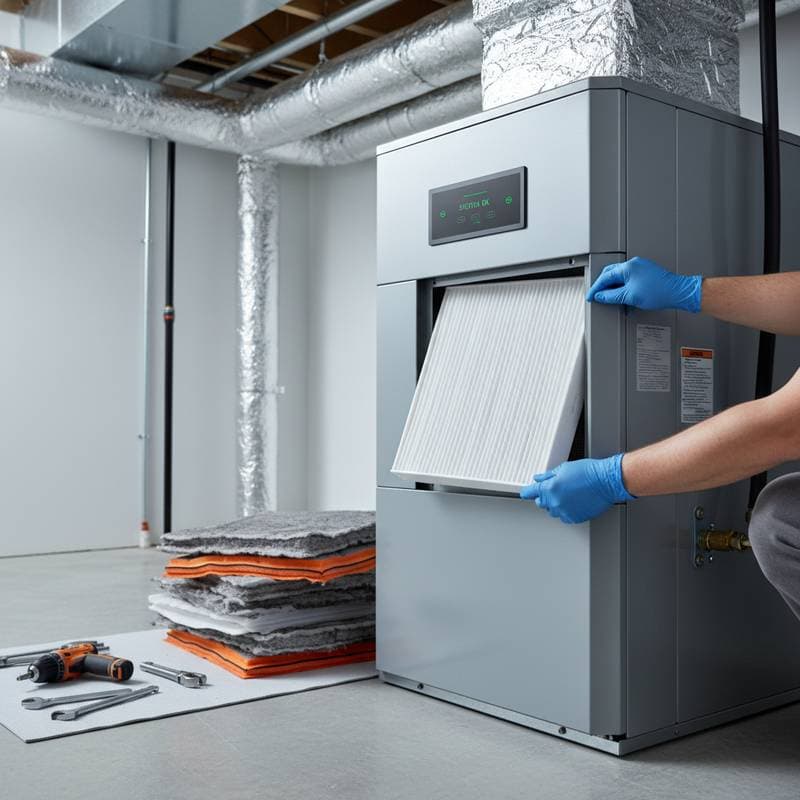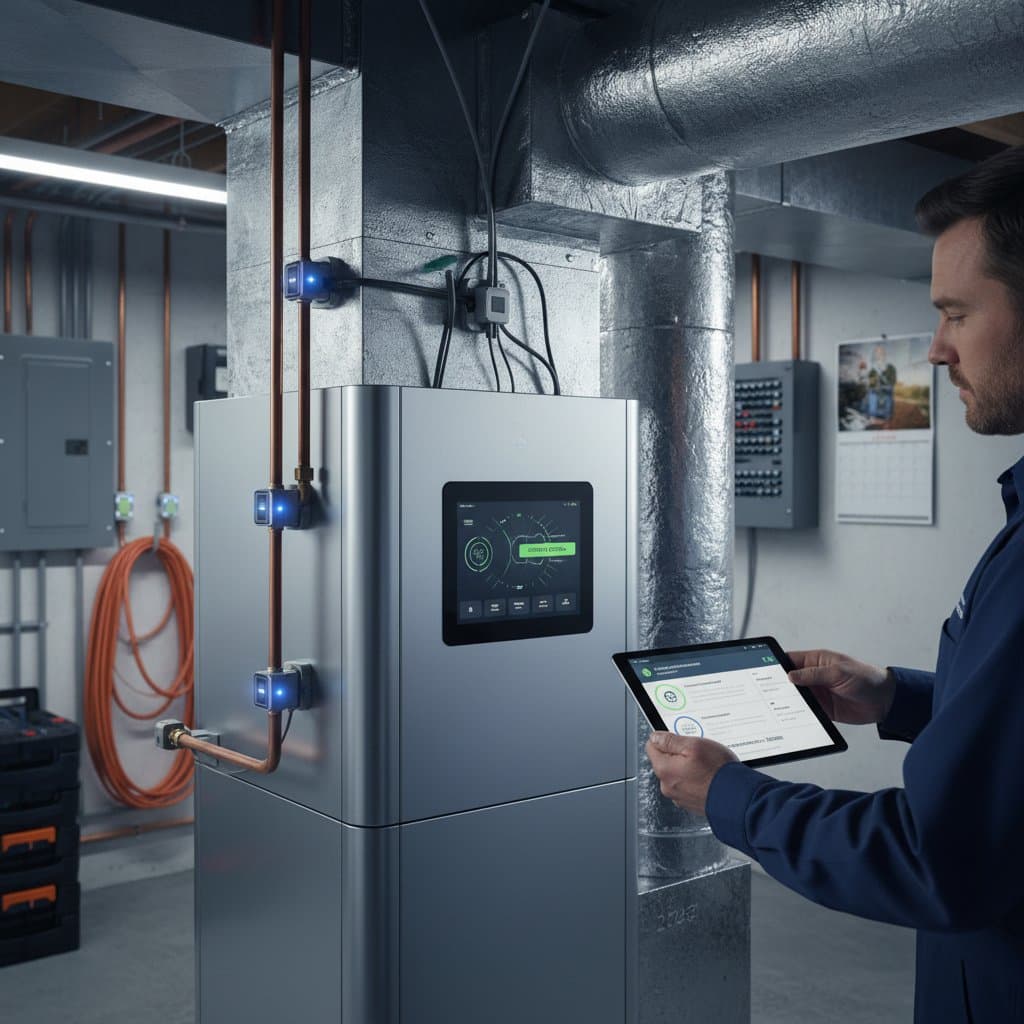The Role of Monthly Filter Changes in HVAC Protection
Determining the Ideal Frequency for HVAC Filter Replacement
Homeowners often overlook the profound impact of HVAC filters on overall system performance, comfort levels, and longevity. While monthly replacement might appear frequent, it represents a straightforward and economical measure to safeguard the heating and cooling infrastructure. A well-maintained filter facilitates unrestricted airflow, enhances indoor air purity, and minimizes the likelihood of substantial repair expenditures.
The typical expense for an HVAC filter falls between $10 and $30, influenced by material composition and filtration efficiency. In contrast, a full HVAC system replacement can range from $4,000 to $10,000. This modest recurring outlay yields significant financial advantages over time. The following sections explore the rationale behind monthly replacements, the repercussions of oversight, and precise methods for selection and installation.
Breakdown of HVAC Filter Replacement Expenses
The financial aspect of monthly HVAC filter replacement varies according to filter category and quality. The table below outlines prevalent options, including average pricing and key attributes.
| Filter Type | Average Cost (Per Filter) | Details |
|---|---|---|
| Fiberglass | $5 – $10 | Provides fundamental particle capture; disposable design suits basic needs |
| Pleated | $10 – $25 | Offers superior trapping of fine particulates; extended service intervals |
| Electrostatic | $15 – $30 | Reusable through washing; effectively captures dust and allergens |
| HEPA | $20 – $50 | Achieves up to 99% particle removal; verify compatibility with your unit |
Pleated filters strike an optimal equilibrium between affordability and efficacy, making them a preferred choice for many households. For environments with pets or allergy sufferers, investing in advanced options like HEPA or electrostatic variants proves beneficial. These selections not only elevate air quality but also alleviate operational stress on the HVAC components.
Consequences of Neglecting HVAC Filter Maintenance
Failure to replace HVAC filters promptly introduces multiple issues that compromise both residential comfort and financial stability. A progressively dirtier filter triggers a cascade of inefficiencies, including:
Escalated Energy Consumption
A restricted filter compels the system to expend additional power to sustain airflow, potentially elevating utility bills by 15 percent or more. This inefficiency arises as the blower motor labors harder against the obstruction.
Inconsistent Temperature Regulation
Limited airflow disrupts even distribution of heated or cooled air, resulting in hot spots in certain areas and chills in others. Such imbalances reduce overall home comfort and prompt more frequent system cycling.
Risk of Component Overheating or Freezing
During cooling operations, a clogged filter may cause the evaporator coil to accumulate ice, halting performance. In heating scenarios, it can induce furnace overheating, leading to automatic shutdowns and potential safety hazards.
Accelerated Deterioration of System Components
Continuous overwork on fans, motors, and coils hastens mechanical failure, often necessitating premature and costly replacements. Routine filter maintenance preserves these elements, thereby extending the operational life of the entire HVAC assembly by several years.
Common Queries on HVAC Filter Management
What Is the Recommended Replacement Schedule for HVAC Filters?
For the majority of households, monthly replacement ensures optimal airflow and air purity. In low-occupancy settings without pets, intervals of two months may suffice, though monthly adherence maximizes system reliability.
Which Filter Type Suits My Residence Best?
Pleated filters provide a versatile solution, combining reasonable cost with effective filtration. Allergy-prone individuals benefit from HEPA or electrostatic alternatives. Consult your system's manual to confirm compatibility with upgraded efficiencies.
Is Cleaning and Reusing Disposable Filters Advisable?
Disposable varieties, such as fiberglass or standard pleated, cannot withstand cleaning without compromising their structure and filtration capacity. Reserve washing for designated reusable electrostatic models only.
Indicators That Signal Filter Replacement
Examine the filter against a light: minimal illumination indicates blockage. Additional cues include increased household dust accumulation, diminished air movement from vents, or extended runtime for the system to achieve set temperatures.
Does Regular Filter Replacement Extend HVAC Durability?
Affirmative. By mitigating stress on critical parts like motors and coils, preventing thermal extremes, and upholding airflow standards, consistent maintenance significantly prolongs equipment service life.
Engaging Professionals for Comprehensive HVAC Care
While filter replacement qualifies as a homeowner-managed task, professional servicing remains essential for peak efficiency. Experts assess refrigerant charges, perform coil cleanings, and evaluate blower and duct integrity to preempt issues.
Essential Questions for Your HVAC Specialist
- Which filter specifications align with my system's requirements?
- Should I opt for high-efficiency filtration to address air quality concerns?
- What is the ideal frequency for complete system evaluations?
- Could you demonstrate the correct filter installation procedure?
- Are there visible indicators of airflow-related strain in my unit?
- How might I best monitor and schedule filter replacements?
- Do you suggest washable filters for my particular configuration?
- What strategies enhance air circulation across my living spaces?
Sustaining HVAC Performance Through Routine Filter Care
Implementing monthly filter replacements constitutes a minor commitment that yields enduring advantages. This practice purifies indoor air, optimizes energy use, and upholds year-round comfort. With negligible expense and effort, it fortifies a vital home asset against breakdowns, curbs operational costs, and ensures reliable performance across seasons.





